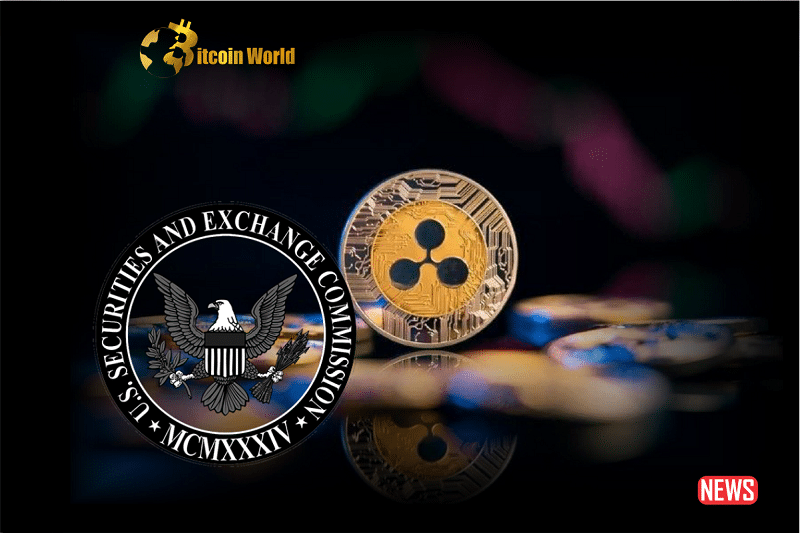The crypto world is still buzzing about the recent landmark ruling in the Ripple vs. SEC case. You know, the one where a judge declared that XRP isn’t necessarily a security? It was a major win for Ripple and the broader crypto industry. But hold on, is the story over? Not quite. The U.S. Securities and Exchange Commission (SEC) has hinted at a possible appeal, leaving some wondering what’s next. Well, Ripple’s top lawyer, Stuart Alderoty, isn’t losing any sleep over it. In fact, he believes an appeal might just solidify Ripple’s victory even further. Let’s dive into why.
Is the SEC Really Going to Appeal?
It seems so. During another legal tussle involving Terraform Labs and its founder Do Kwon, the SEC mentioned the possibility of appealing the Ripple ruling. This raised eyebrows across the crypto sphere. But according to Stuart Alderoty, Ripple’s Chief Legal Officer, they’re ready for whatever the SEC throws their way. He made it clear on a recent TechCrunch podcast: Ripple isn’t backing down.
Why is Ripple So Confident?
Alderoty’s confidence stems from a few key points:
- The Judge Got it Right: He believes Judge Analisa Torres correctly applied the law when she ruled that XRP isn’t inherently a security, except when sold to institutional investors.
- Appeal Could Strengthen the Ruling: Alderoty even suggests that an appeal could lead to a higher court further validating and possibly even strengthening the initial decision. Imagine that!
- SEC’s Stance is Flawed: He argues that the SEC’s broad view of classifying nearly all crypto assets as securities is misguided and will face challenges in other ongoing legal battles.
In Alderoty’s own words, “Our case and the decision rendered by our judge [Torres] will comfort other judges that the SEC is just misguided.” That’s a pretty strong statement!
What Was the Big Win Anyway?
Let’s recap. On July 13th, Judge Torres delivered a significant blow to the SEC’s approach to crypto regulation. She ruled that XRP, the digital asset powering Ripple’s payment network, isn’t automatically a security. This was a game-changer because it provided much-needed clarity on the classification of cryptocurrencies. However, she did find that XRP was a security when sold to institutional investors. This nuance is important to understand.
The Lingering Uncertainty: What’s Next for Crypto Regulation?
While the court victory was a major relief for Ripple, Alderoty points out that the broader regulatory landscape for crypto in the U.S. remains murky. He criticizes the SEC’s “regulation by enforcement” approach, arguing that it stifles innovation and hinders the growth of the American crypto industry. Think about it: companies are often left guessing what the rules are until the SEC brings an enforcement action. That’s not exactly a recipe for progress.
Why Does Clear Regulation Matter?
Alderoty emphasizes the urgent need for a clear, rational, and understandable regulatory framework for cryptocurrencies in the United States. Without it, he warns, the U.S. risks falling behind other countries that are adopting more forward-thinking approaches to digital assets. Imagine the potential economic benefits and technological advancements being missed!
What Does This Mean for XRP?
The market seems to be taking the news well. As of now, XRP is trading above $0.70, showing a slight increase in the past day. This positive price movement reflects the market’s confidence in Ripple’s legal victory and the potential positive impact on the wider crypto market. The ruling provides a crucial precedent for classifying crypto assets, which could influence future regulatory decisions and pave the way for more mainstream adoption.
Key Takeaways: What You Need to Know
- Ripple is prepared for an SEC appeal: Stuart Alderoty exudes confidence and believes it could further strengthen their victory.
- The XRP ruling was a significant win: It established that XRP is not inherently a security, offering clarity to the market.
- Regulatory uncertainty persists: The lack of clear rules in the U.S. continues to be a challenge for the crypto industry.
- Clear regulation is crucial: It’s essential for fostering innovation and preventing the U.S. from lagging behind in the global crypto race.
Looking Ahead: A More Certain Future for Crypto?
Stuart Alderoty’s optimism shines through, even in the face of a potential appeal. The Ripple case is more than just a legal battle for one company; it’s a fight for clarity and a more rational regulatory approach for the entire cryptocurrency industry. The outcome of a potential appeal could have far-reaching consequences, shaping the future of crypto in the United States and beyond. One thing is certain: the crypto world will be watching closely.
Disclaimer: The information provided is not trading advice, Bitcoinworld.co.in holds no liability for any investments made based on the information provided on this page. We strongly recommend independent research and/or consultation with a qualified professional before making any investment decisions.



